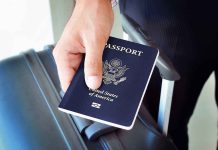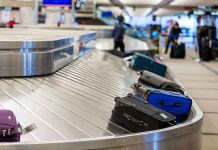
As China pursues the recovery of over $435 million from Li Chuanliang, questions arise over possible political motivations behind the corruption charges.
At a Glance
- Li Chuanliang accused of illegal assets worth over 3.1 billion yuan.
- Mudanjiang court processes confiscation application against Li.
- Li’s career included high-ranking positions in Chinese cities.
- Li resides in the US, claiming charges are politically motivated.
Allegations and Legal Proceedings
Li Chuanliang, a former political figure in Heilongjiang, faces accusations of holding illicit assets exceeding 3.1 billion yuan, as revealed by China Daily. The Mudanjiang Intermediate People’s Court has commenced the process to confiscate these assets, including over 1,000 properties linked to Li’s wrongdoing. These legal proceedings reflect China’s broader efforts to tackle corruption within its political ranks. Authorities are keenly pursuing assets believed to be obtained through misuse of power and influence.
The indictee has allegedly embezzled vast sums from the public treasury, converted kickbacks totaling 48.92 million yuan, and leveraged public funds for personal advantage. Investigations continue to uncover how Li utilized his positions, such as the head of Jixi finance bureau, in acts of misappropriation for which he remains unpunished. While in hiding, his illicit wealth accumulation amplifies China’s commitment to anti-corruption initiatives.
Political Backdrop and Motivations
The case extends beyond legal confrontations, featuring Li Chuanliang’s charges as a symbol of deeper political tensions. He publicly contests the validity of these accusations, alleging they are retaliatory actions in response to his criticisms of the Chinese government. Li contends the charges lack a legal foundation and argues they are employed to silence voices like his own, which criticize ongoing governance issues. The circumstances invite speculation on whether the state may leverage corruption charges as a tool to control dissent.
The interplay of government integrity and political retribution draws attention to complex motivations underlying China’s stringent anti-corruption measures. Transparency and fairness remain pivotal concerns, as highlighted by international critique on China’s judicial transparency. INS efforts to enforce existing laws must conscientiously avoid misinterpretation of political dissent as criminal activity.
China’s Anti-Corruption Campaign
Being a fugitive since his departure in 2018, Li’s journey underscores China’s growing resolve to recombine international efforts in retrieving assets from overseas. Authorities are steadfast in their pursuit to compensate fiscal deficits inflicted by corrupt officials abroad. Official reports indicate that, from 2014 to 2020, the nation has seen a recompense in billions, holding probes into various figures accountable and repatriating assets to affirm rule of law. China’s focused directives, while controversial, highlight a fierce administrative crackdown on corruption.
The move to confiscate Li’s assets aligns with broader initiatives targeting economic crimes, including illicit asset recovery through international cooperation frameworks. As prosecutors look to solidify claims under China’s Criminal Procedure Law, the ties between corruption controls and potential political misuse invite dialogue over policy direction. Observations must be made on China’s handling of anti-corruption to ensure its fairness and balance serve to enhance trust in governance.





